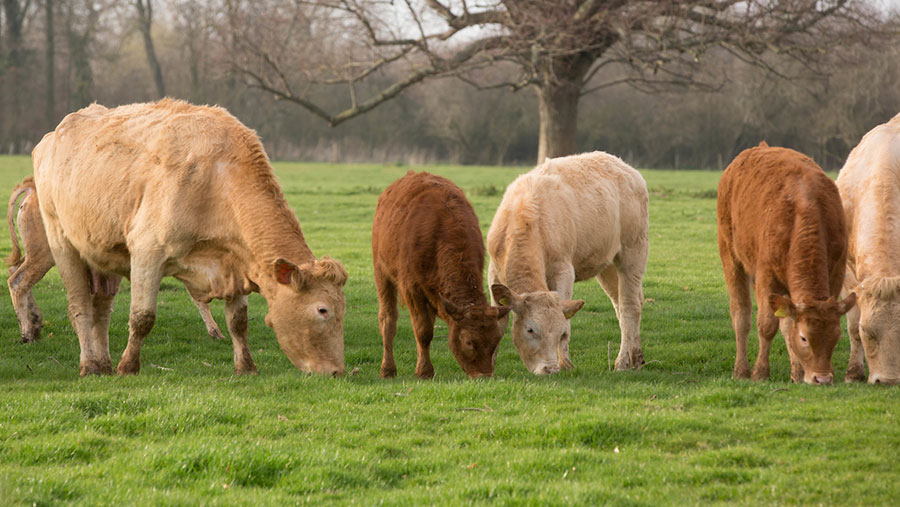Farm groups join forces to tackle UN on greenhouse gas
 © Tim Scrivener
© Tim Scrivener Farm leaders want the United Nations (UN) to adopt a more accurate measure of global warming – arguing that current methods wrongly place too much blame on livestock.
Industry organisations from the UK and New Zealand said the UN’s Intergovernmental Panel on Climate Change (IPCC) should use more sophisticated metrics to assess the impact of different greenhouse gases.
They argue that the current method of converting the impact of all greenhouse gases to their carbon equivalent (GWP100) overplays the impact of shorter-lived pollutants, such as methane.
See also: Farmers could benefit from better approach to greenhouse gas
Some 44% of global livestock emissions are in the form of methane, according to the Food and Agriculture Organisation of the United Nations.
The farm groups want the IPCC to evaluate a more accurate measure of global warming potential that accounts for the impacts of long- and short-lived greenhouse gases at different temperatures.
‘Vitally important’
Signatories to a joint statement include the NFU, Country Land and Business Association, NFU Scotland, NFU Cymru Wales, Ulster Farmers’ Union and the National Sheep Association.
The statement says it is “vitally important” that the best available scientific information and tools are used to inform decisions made by global and domestic policy makers.
“While GWP100 is the accepted metric for describing the warming impact of greenhouse gases, it is acknowledged to have shortcomings,” says the statement.
It adds: “Using metrics that inaccurately capture the contribution to warming of short-lived gases could lead to poor policy decisions.”
Policy advice needs to reflect solutions that distinguish between the dynamics of biogenic methane and gases that persist in the atmosphere for long periods, says the statement.
Whatever the IPCC’s decision on greenhouse gas metrics, the industry organisations say farmers are committed to broad-based action on climate change.
‘Urgent action’
But it warns: “We cannot afford to wait for more accurate measures to be developed.
“Urgent action is needed now to improve productivity, conserve the carbon already in our pastures and grasslands, and store more carbon for the good of society.”
Earlier this year, Oxford climate scientist Michelle Cain suggested farmers could benefit from a more sophisticated approach to measuring greenhouse gas emissions.
“This is important for making decisions about which mitigation strategies are most effective, or for evaluating trade-offs between gases,” she said.
Dr Cain said nitrous oxide from manure lasted much longer in the atmosphere and had a more potent long-term climate impact than methane, which lasted for only 10 years.
Focusing on reducing methane emissions would thus have a bigger, quicker effect on global temperatures, she suggested.
